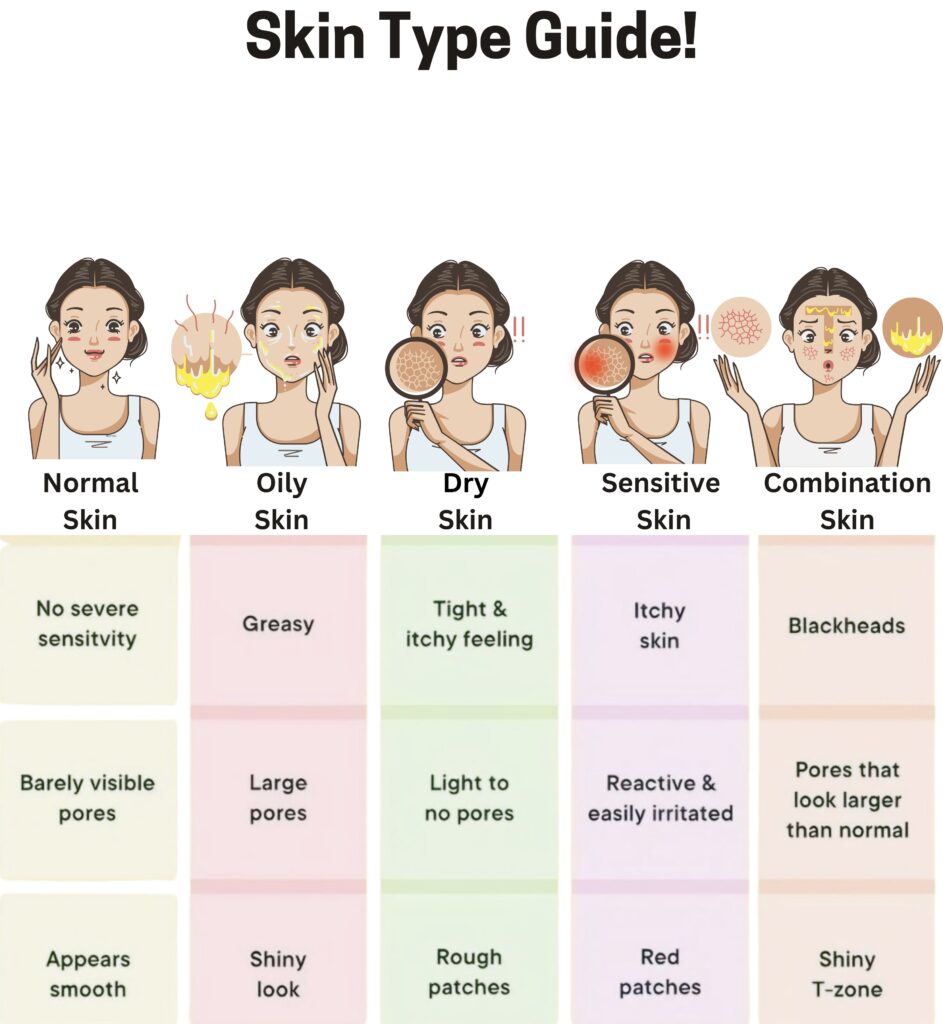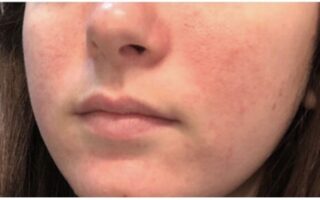The Importance of Understanding Your Skin Type
Why Is Knowing Your Skin Type So Important?
Understanding your skin type is the foundation of effective skincare. When you know your skin type, you can make better decisions about how to care for your skin. It’s about finding skincare products that truly work for you—products that enhance your skin’s health rather than causing unwanted issues like dryness, breakouts, or irritation.
Each skin type reacts differently to skincare products and their ingredients. What works wonders for oily skin might not suit dry skin, and vice versa. This is why knowing your skin type is essential; it allows you to select products tailored to your unique needs, maximizing their benefits while minimizing the risk of adverse reactions.
Seeking Professional Help
If you’re unsure of your skin type, don’t worry. Seeing an esthetician or dermatologist can help you determine what type of skin you have. Professionals can also identify any underlying skin conditions, such as eczema, rosacea, or acne, and recommend targeted treatments to address your concerns. Understanding these details about your skin is crucial for building a routine that supports long-term health and beauty.
The Risks of Using the Wrong Products
Using skincare products that aren’t suited to your skin type can lead to unnecessary skin issues—clogged pores, redness, excessive oiliness, or even dryness. Over time, these mismatched products can disrupt your skin’s natural balance, making it harder to achieve a radiant complexion.
The Benefits of Getting It Right
When you use skincare products designed specifically for your skin type, your skin becomes more balanced, hydrated, and nourished. The result? A complexion that not only looks great but feels healthy and resilient. Knowing your skin type is the first step toward glowing, radiant skin that you’ll love showing off.
Skin Types
Normal skin
Normal skin looks perfectly flawless to the naked eye. There are few people that actually have normal skin type. It has no dryness, not oily or excess oil, flawless color and perfect pores.
To keep normal skin healthy, a good skin care regimen including cleansing, toning and moisturizing.
Dry skin
Dry skin is lacking oil. Environment, medical conditions can be the cause our skin to be dry. Excess exposure to dry weather, hot water, unbalanced skin pH, certain chemicals can contribute to drying out our skin. Skin conditions such as atopic dermatitis, seborrheic dermatitis, and psoriasis. Health conditions, hypothyroidism and diabetes. As we age our skin can get dryer than when we were younger.
Appearance of dry skin:
- Skin flaking
- Your face feels tight
- Your skin looks dull
- Skin can feel itchy
- Skin can appear red
- Creepy skin
To treat dry skin use a gentle cleanser, toner to balance the pH level, exfoliating to remove excess dry dead skin cells, moisturizer.
Oily skin
Oily skin has excess sebum and oil production. The pore (follicle) are larger. The appearance of the skin is shiny and thick. When a person has oily skin, it is in danger of getting breakouts. Oil is not moisture. Oily skin has enough oil but can be dehydration and lacking in moisture.
Appearance of oily skin:
Shiny skin
Large pores
Your skin breakouts – whiteheads, blackheads and pimple
Oily skin treatment- Keep it balanced do not over treat, excess treatment can worsen. Do daily cleansing, gentle exfoliate the build up dead skin cells 1 – 2 times a week, and an oil free moisturizer.
Combination Skin
Combination skin is part oily and part dry. Usually in the T-zone, forehead and center part of the face. T-zone tends to be oilier because increased number of sebaceous (oil) glands in this area of the face. Cheeks and putter part of the face tend to be dry, flaky or scaly.
Combination skin treatment- Cleanse, tone, products for oily skin can be used in the T-zone and a moisturizer for combination skin.
Sensitive Skin
The look of sensitive skin; pink to red in color, skin flushes easily, may feel uncomfortable or painful when touched. The skin is aggregated by topical substances and environmental conditions. Sensitive skin can be confused with having an allergic reaction, all skin types can have allergic reaction.
Sensitive skin treatment – Sensitive skin needs to be treated gently, sun exposure can irritate. Use products specific for sensitive skin, product lines recognize in the labeling. Using harsh chemicals, perfumes and preservatives can irritate sensitive skin.
If you want the best results from your skincare products, then, stick with products according to your skin type. Most skincare products are labeled which skin is best suited for that product. An esthetician or dermatologist can help you with skincare products help assist you in which products you need for your skin.
There are secrets to help you have better looking skin by using products made specifically for you according to your skin type. Do you need help figuring out your skin.










